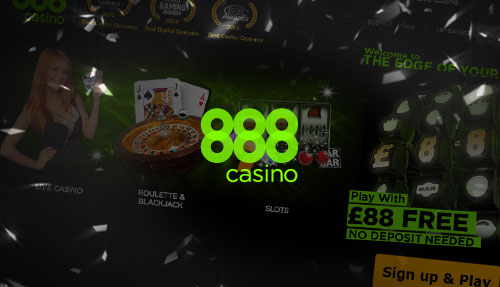How to Play Spanish 21
A popular variant of blackjack which gives players a refreshingly different way to try and beat the dealer without going bust, Spanish 21 keeps the core aspects of blackjack intact whilst adding new elements to the classic game.
Where to Play Spanish 21
Spanish 21 can be played at the Casino at the Empire in London, providing a fresh twist for those who may wish to try something a little different to blackjack while enjoying extra bonuses and new challenges. You can also play Spanish 21 online at 888Casino from your desktop. Give it a try today and see what happens!
Basic Rules
The basic rules of Spanish 21 follow the same lines as traditional blackjack, as players start by receiving two cards and try to get the better of the dealer without going over 21. Check out the How to Play Blackjack page for an in-depth guide. The main differences in Spanish 21 are:
- A 48-card deck - While blackjack is played with a regular 52-card deck, the four tens are removed from the pack when playing Spanish 21. Multiple decks are often used.
- Player 21 - If your hand totals 21, you win, regardless of whether or not the dealer also holds 21.
- Doubling - In blackjack, players are only allowed to double their bet after receiving their first two cards - meaning they must take one more card only. In Spanish 21, players can double down after any number of cards.
The removal of the four tens from the deck gives the dealer more of an advantage than in blackjack, but to compensate there are other rules which are to the player’s favour. For example, in Spanish 21 a player can split to a maximum of four hands, even on aces, while there are some enhanced payouts for particularly unusual hands.
Whereas a hand of 21 pays out at 3:2 in blackjack, in Spanish 21 a six-card score of 21 pays out at 2:1 and a seven-or-more-card 21 pays 3:1. Also, a 6-7-8 of all spades pays 3:1 and a 6-7-8 of all other suits pays out at 2:1. There is also a ‘super bonus’ for getting a suited 7-7-7 against any dealer 7, which is typically £1,000 for any bets of under £25 and £5,000 for any bets of £25 and over. All other players at the table receive a £50 ‘envy bonus’. None of these rewards apply, however, if the hand was doubled at any stage.
In Spanish 21, the dealer always receives a hole card. In blackjack this is also common but is not set in stone and depends on the table where you play.
Etiquette
The general rules for etiquette are the same as in regular blackjack. You should only use one hand when touching your cards and make sure not to touch your bet after you have placed your wager. It is also a good idea to learn the hand signals to help you get into the spirit of the game and keep things moving as quickly as possible. Above all, learn the rules of the game before you play and remember to show respect towards casino staff and nearby players.
Strategy
Just like in blackjack, the main tip in Spanish 21 is to be aware of how your hand compares to that of the dealer, rather than worry about what other players are doing or trying to land as close to 21 as possible. Strategy charts have also been constructed to advise players on what to do in particular situations, and a basic example might look like:
| Your Hand | Dealer’s Up Card | What to Do |
|---|---|---|
| 5-9 | Any | Hit |
| 10 or 11 with 5 or more cards | 2 to 7 | Hit |
| 10 or 11 | 2 to 7 | Double down |
| 10 or 11 | 8 to A | Hit |
| 12 to 14 | Any | Hit |
| 15 or 16 | 2 to 6 | Stand |
| 15 or 16 | 7 to A | Hit |
| 17 to 21 | Any | Stand |
| A,3 to A,6 | Any | Hit |
| A,7 to 21 | Any | Stand |
| 2,2 | 2 to 7 | Split |
| 3,3 | 2 to 7 | Split |
| 6,6 | 2 to 7 | Split |
| 7,7 | 2 to 7 | Split |
| 8,8 | Any | Split |
| 9,9 | 2 to 9 | Split |
| A,A | Any | Split |
| Any other pair | Any | Play as a hard hand |
Another option available in Spanish 21, but not always in blackjack, is a late surrender. This gives players the chance to throw in the towel after two cards, so long as the dealer doesn't have 21, and lose just half of their original bet. It is a move which gives away any chance of winning a hand but can be worth utilising from time to time when defeat seems almost certain.
It is also sensible to be slightly wary of the bonuses in Spanish 21. It can be tempting to hit when you are within sight of a Bonus 21, even when the odds are against you, and end up going bust. Likewise, you might decide to double down when you have been dealt an 11 in the hope of getting a card worth 10 to take you to 21, but remember that there are fewer cards valued at 10 in the pack because four of them have been removed, so the chances of success are slimmer.
As with blackjack, the insurance side bet is best avoided because the house edge is set at 24.7 percent. However, the “Match the Dealer” side bet offers a reasonable (but still high) house edge and can be a fun indulgence during the course of the main game. A player’s cards are compared to the dealer’s up card, with the following payouts available based on six or eight-deck games:
| Decks | Match 1, Non-Suited | Match 2, Non-Suited | Match 1, Suited | Suited and Non-Suited Match | Match 2, Suited | House Edge |
|---|---|---|---|---|---|---|
| Six | 4:1 | 8:1 | 9:1 | 13:1 | 18:1 | 3.06% |
| Eight | 3:1 | 6:1 | 12:1 | 15:1 | 24:1 | 2.99% |
Important Terms:
Visit the Casino Glossary for more terms which you might find in Spanish 21 or other casino games.



